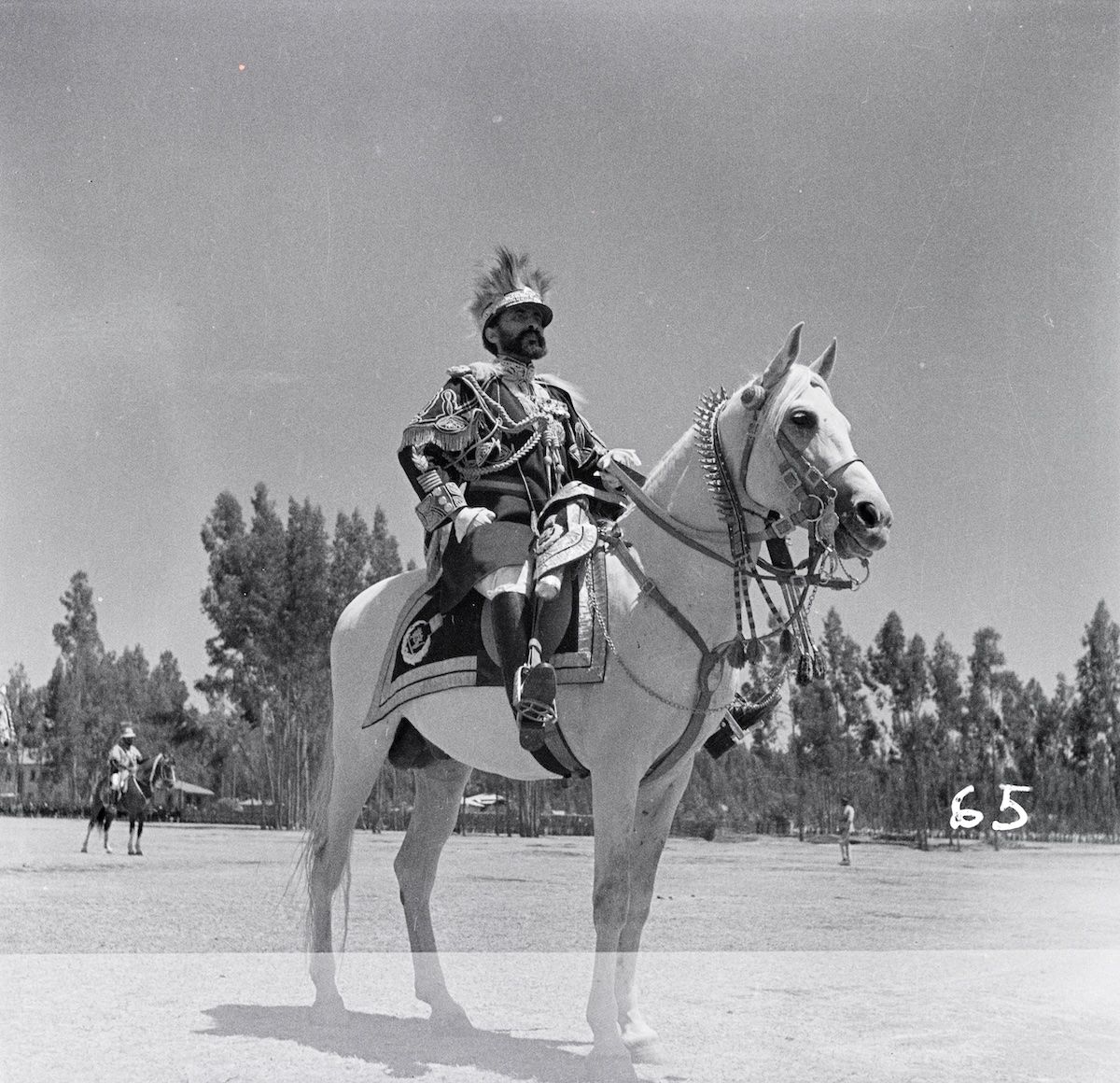In the Court of Haile Selassie
Three very different writers – Evelyn Waugh, Wilfred Thesiger, and Ryszard Kapuscinski – reported on the court of Haile Selassie during his reign, producing contrasting accounts of Ethiopia’s emperor.

Christian and never colonised, remote and mysterious Abyssinia has only occasionally impinged on the western consciousness during its centuries of isolation. Evelyn Waugh visited it in 1930 and satirised what he saw as a barbaric country and the splendiferous coronation of Emperor Haile Selassie, who was to reign for 44 years, in Remote People (1931). He returned six years later to report and praise the Italian invasion in Waugh in Abyssinia (1936). Wilfred Thesiger, the son of a diplomat, was born in the mud buildings of the British legation in Addis Ababa, spent his childhood in Abyssinia and later explored unknown parts of the East African country. Serving in Orde Wingate’s Gideon Force during the Second World War, he helped drive out the Italian oppressors. He admired the traditional way of life and remained fiercely loyal to Selassie in his autobiography, The Life of My Choice (1987). The Polish journalist Ryszard Kapuscinski described the revolution of 1974 that overthrew Selassie in The Emperor (1978).





